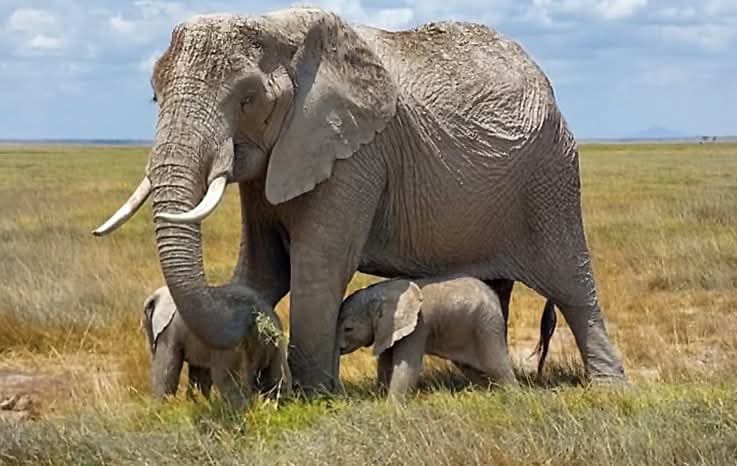Amboseli National Park welcomes rare twin elephant calves

Twin births among elephants are extremely rare, and the survival of both calves is often uncertain, as mothers must provide enough milk and protection for two infants at once.
Twin elephant calves have been born in Kenya’s Amboseli National Park, a rare event that occurs in only about one per cent of elephant pregnancies. The Kenya Wildlife Service (KWS) described the sighting as a “miraculous moment” and a testament to the success of conservation efforts that help Kenya’s elephants thrive in the wild.
The newborn twins were recently spotted following their mother across the park’s expansive grasslands.
More To Read
- Counties intensify pressure on national government over park revenue-sharing model
- Maasai community sets aside 1 million acres to protect Amboseli ecosystem
- Ruto presides over historic handover of Amboseli National Park to Kajiado County
- Government gazettes transfer of Amboseli National Park management to Kajiado County
- Tourists to pay up to Sh11,000 to enter Kenya’s top national parks from October 1
- Ebony and ivory: Why elephants and forests rise and fall together in the Congo Basin
"When nature says 'one’s not enough,' you know something special’s coming… twins have entered the chat!" said KWS.
"Twin elephant calves were recently sighted in Amboseli, the iconic home of the African elephant — a rare glimpse of nature’s quiet miracles!"
Twin births among elephants are extremely rare, and the survival of both calves is often uncertain, as mothers must provide enough milk and protection for two infants at once.
African elephants have the longest gestation period of any land mammal, carrying their young for about 22 months. While twin births are uncommon, twins of different genders are even more exceptional. According to Giacomo D’Ammando, Samburu Research Manager at the non-profit Save the Elephants, mothers only carry twins to term under certain conditions, which require further study.
In January 2022, a mother elephant named Bora in Samburu National Reserve gave birth to a male and female pair of twins. Despite surviving a prolonged drought for three months, the female calf eventually disappeared, likely due to predation or natural causes, while the male’s current status remains uncertain.
A year later, in 2023, another mother named Alto gave birth to twin females — the reserve’s second set of twins in just two years.
“They have both been sighted by our researchers in the field on several occasions with their mother and the wider family, and are healthy and strong,” said D’Ammando. "Bora hasn’t been seen for some time, so how her son is faring isn’t known."
In addition, the Kenya Wildlife Service reported a rare twin birth in Shimba Hills National Reserve, Kwale County, in early January 2025, further highlighting the exceptional nature of such events in Kenya.
Top Stories Today















































